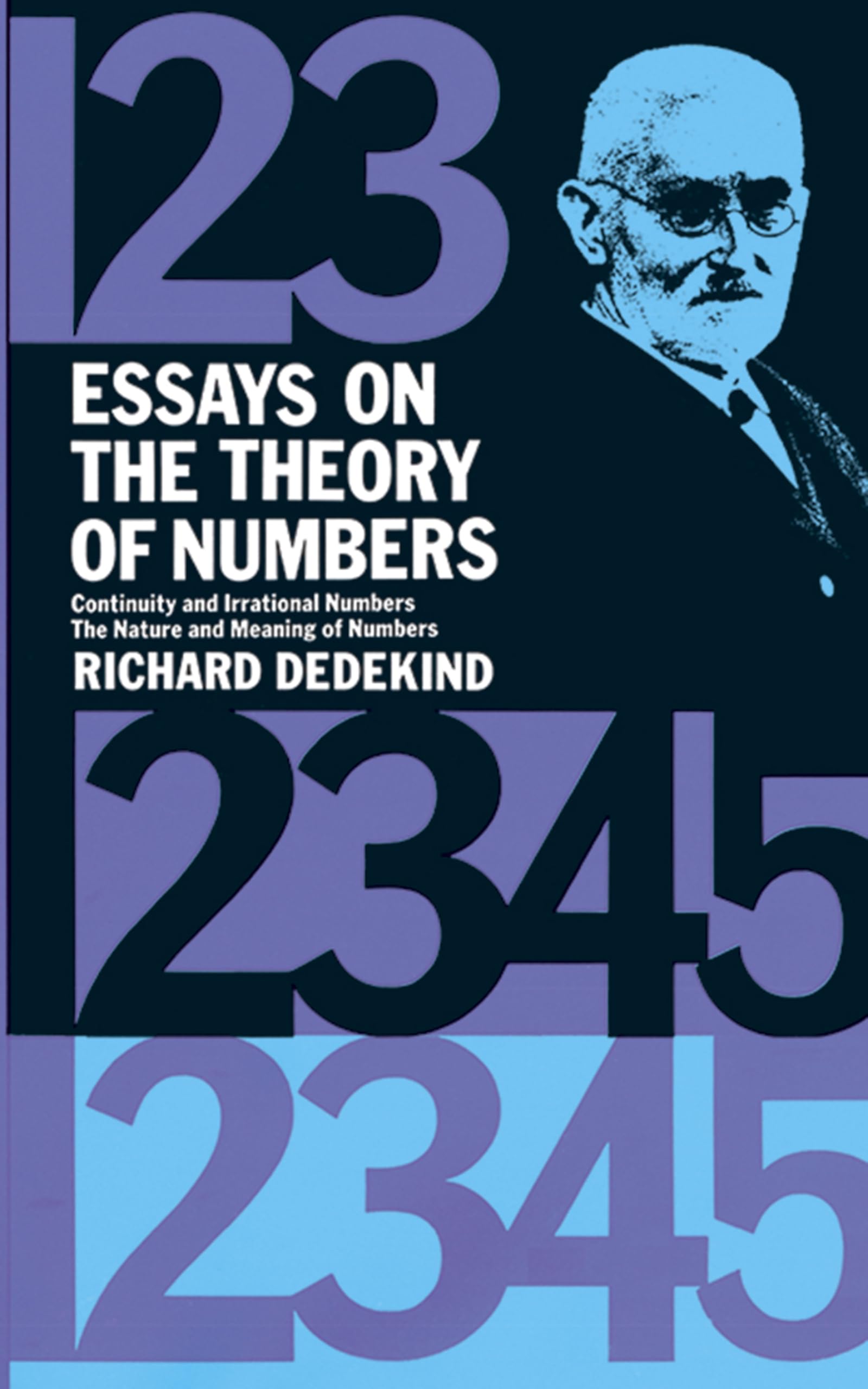

Essays on the Theory of Numbers (Dover Books on Mathematics)
K**R
An original and therefore important historical perspective.
Dedekind laid down a significant part of the theory of numbers. Every modern treatment on the topic will include his contribution. However, this is a historical treatment, not the place to learn the theory. For learning (in depth) I would highly recommend one of the books by Raymond M. Smullyan. A particular favorite of mine are the introductory chapters to "Set theory and the Continuum Problem." Yet Smullyan's book might be a whole lot more than you ever wanted to know about the subject. If you're just trying to get through a university level class, then most of the introductions in advanced calculus or real analysis texts are what you'll want. But if you'd like to know how a genius thought through and laid out part of the foundations, Dedekind's book is a must.
V**O
Foundations of the reals, foundations of the integers
The first essay (27 pages) is Dedekind's excellent exposition of his "Dedekind cuts" definition of the real numbers. This constructs the reals from the rationals and proves that there are no gaps left. The only downside, Dedekind anticipates, is that the principles on which this proof is built are so "common-place" that "the majority of my readers will be very much disappointed" (p. 11) that there is nothing more to it.The second essay develops basic set theory and uses it in particular to build a foundation for the integers in terms of the successor function and induction. It's a plain definition-theorem-proof account, just as may be found in any foundations of mathematics book of today. There is none of the enthusiasm of the first essay. Dedekind even says that working out this theory was a "wearisome labor" (p. 41, referring to building the theory of infinite sets from the definition that a set is infinite if it can be put in one-to-one correspondence with a subset of itself---of course, Dedekind doesn't make this remark out of dislike of mathematics, but for the sake of alerting others to the brilliance of his work, which incidentally seems to have been one of his key motivations throughout).
F**N
First rigorous and unified solution to the mysteries of numbers?
Richard Dedekind's "Essays on the Theory of Numbers" is about the problem of irrational numbers and continuity in the first part, and set theory and transfinite numbers in the second.The essays are backwards in my opinion. The set theory essay should have come first. John Stillwell has championed the idea of deriving numbers and their basic properties(commutativity/associativity) by means of mathematical induction; here is where it comes from. Numbers are shown to be like the quanta the infinit number 'field'(not like what mathematicians define field as, but like what Maxwell and Quantum physicists mean). Richard's book also describes the nature of transfinite sets. Then, the first essay on continuity and irrational numbers suggests how to derive the rational numbers and then the real numbers from this 'natural number field'. He gives some idea that Weirstrasses delta technique in calculus can be proved/rigorized as a generalization of Dedekind cuts. He gives some ideas for finite geometries.All in all, the book is full of ideas relating and solving many mysteries of numbers.
C**Y
Accessible genius
This is not a book of "number theory" in the usual sense. It is a book combining two essays by Dedekind: "Continuity and irrational numbers" is Dedekind's way of defining the real numbers from rational numbers; and "The nature and meaning of numbers" where Dedekind offers a precise explication of the natural numbers (using what are now called the Peano axioms, since Peano made so much of them after reading Dedekind). They are essays in logic, or foundations of mathematics, or philosophy, as you like. And they are brilliant, readable, works of genius.Probably the main value of the book is as an introduction to Dedekind's way of thinking about mathematics: his clarity, precision, and way of cutting to the bare core of a subject. You can find the same genius in Dedekind's THEORY OF ALGEBRAIC INTEGERS (available in a fine English translation by John Stillwell) but of course that is a more advanced text. The same style of thought works powerfully in all of Dedekind's mathematics. But most of it is very hard stuff. Here you see it in easily accessible form, suitable for even a smart high school student willing to think hard.
M**R
Dedekind was a highly influential mathematician and here's why.
Dedekind's essays on numbers have fundamental importance for our understanding of modern mathematics and its role in the world.
G**I
Item delivered on time and well described
Item available, well described, delivered on time. Specifically about the book: good translation, but the Dedekind's theory (What are the numbers...?) should be developed better with more essays on the same topics.
Trustpilot
1 month ago
1 month ago